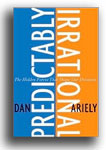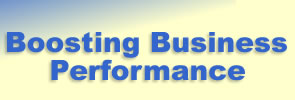Tips on Predicting Irrational Consumer Behavior
by Adele Sommers
One of the most fascinating business books to appear in the last few decades is “Predictably Irrational: The Hidden Forces that Shape Our Decisions,” by Dan Ariely.
 An MIT researcher and professor of behavioral economics, Ariely has documented some profound discoveries in his twenty years of studying how we engage in a wide range of consumer activities. An MIT researcher and professor of behavioral economics, Ariely has documented some profound discoveries in his twenty years of studying how we engage in a wide range of consumer activities.
His conclusions: Human beings tend to behave irrationally, but do it in a fairly predictable way.
If we take these discoveries to heart, they could significantly shape the way we conduct our business and other pursuits to cater to these “irrational” aspects of human behavior.
This article summarizes the findings in four of about a dozen topics of Ariely’s book, which you can ponder and apply to your own situations!
We Perceive Value in Relative Terms
A series of carefully designed experiments showed Ariely the extent to which we perceive differences and make decisions based on comparisons. For example, he found that, when offering a set of options to buyers, including a slightly defective (or otherwise less desirable) “decoy” can help consumers zero in on the option they believe to be relatively superior.
Examples of the “decoy effect”:
- If offered three different price and feature options, in which the second and third options are nearly identical in price, but the third option offers more features, buyers tend to ignore the first option and choose the third, based on comparisons of Options 2 and 3. (Option 2 is the decoy.)
 If offered three price and feature options where the prices are spaced apart, such as TVs for $600, $750, and $900, buyers tend to select the middle option, which is usually what the retailer wants to sell. If offered three price and feature options where the prices are spaced apart, such as TVs for $600, $750, and $900, buyers tend to select the middle option, which is usually what the retailer wants to sell.
Or, with two options, buyers often choose the least expensive, especially if the more expensive option is designed to be an overpriced or under-featured decoy. For example, restaurant patrons rarely select the most expensive (decoy) items on the menu, but frequently order the second-most.
- A real estate agent shows three homes, all of about the same desirability. Assume that the second and third homes are very much alike, and different in style from the first home. If Home #3 needs fewer repairs than Home #2, buyers would tend to choose Home #3, since they can easily compare it to Home #2 (the decoy). They would tend to pay little attention to Home #1.
“Free” Is The Most Insanely Attractive Option Ever
In experiments with astonishing results and implications, Ariely found that offering something for “free” is far more compelling to consumers, relatively speaking, than offering that same item for just a few dollars or cents. We could think of the concept of “free” almost like a piece of mind candy!
 For example, Ariely observed subjects going to great lengths to obtain “free” items, while in other situations, they would pass up those same items when they were offered for as little as a penny. For example, Ariely observed subjects going to great lengths to obtain “free” items, while in other situations, they would pass up those same items when they were offered for as little as a penny.
After conducting a wide range of relative price experiments, Ariely concluded that our attraction to “free” is so greatly disproportional to the need, value, or benefit associated with any given item, that “free” constitutes a phenomenon of its own.
This body of research demonstrates the extent to which we’re willing to forego buying reasonably priced items that we do want in favor of “free” item bundles that we don’t really want or need, or that would represent an inferior deal overall.
Examples:
- Our tendency to buy a large enough quantity of anything to qualify for “free shipping” — even if it greatly increases our total purchase price.
- Our tendency to expend large amounts of our otherwise valuable time filling out rebate applications just to get an inexpensive item for “free.”
Why We’re Happier Doing Some Things without Pay
Ariely introduces the concept of social norms vs. market norms, as follows:
 Social norms pertain to the friendly requests we make of one another, and represent the standards we use in informal social situations. These include the courtesies and favors we do for our families, friends, acquaintances, or strangers, including volunteer work. Social norms pertain to the friendly requests we make of one another, and represent the standards we use in informal social situations. These include the courtesies and favors we do for our families, friends, acquaintances, or strangers, including volunteer work.
- Market norms are much more cut-and-dried, and are regulated by wages, prices, markups, rents, interest, and cost-benefit tradeoffs.
Ariely observes that the actions we perform under social norms, such as volunteer work or doing a favor for a friend, are intrinsically satisfying. If we’re offered payment for doing the same things under market norms, it tends to feel wrong, undesirable, or even insulting. That’s because when market norms enter the picture, an action stops being a courtesy and becomes an economic transaction.
Exceptions: Small gifts of appreciation tend to feel acceptable as “payment” for favors because they fall more easily into the social norm category.
Further, people are more willing to volunteer their time than accept a very low rate of pay. Ariely explains, “People are willing to work for free, and they are willing to work for a reasonable wage; but offer them just a small payment and they will walk away.”
How Dishonest Are We When We Think No One Is Looking?
 When given a surreptitious way to cheat on a test, Ariely learned that most subjects tended to cheat somewhat — but only enough to increase their scores by an average of about 10% over the scores of control subjects who had no way to cheat. When given a surreptitious way to cheat on a test, Ariely learned that most subjects tended to cheat somewhat — but only enough to increase their scores by an average of about 10% over the scores of control subjects who had no way to cheat.
His experiments showed that we do seem to take advantage of “cheating” situations, but not outrageously so. Our self-control mechanisms tend to keep us in line. There are some significant exceptions, however:
- Cheating goes way down (or completely away) when people are asked to take an oath about not cheating, or are informed in advance of an honor code.
- Cheating is relatively rare when cash is involved. People tend to be unlikely to steal currency even when they have a chance to do it without being caught.
- Cheating goes way up when people are dealing with items that are one step away from currency. When handling tokens, credit cards, insurance claims, or other non-cash representations of value, Ariely found that people tended to cheat more than twice the amount that they would have in circumstances where no cash was involved — in fact, the highest amount of all experiments. This raises significant concerns as we move into more of a cashless society!
In conclusion, Ariely’s incisive discoveries regarding our consumer tendencies not only give us greater insight into our own behaviors, but tremendous advantages in structuring our business, marketing, communication, and other activities as well.
Copyright 2022 Adele Sommers
|


